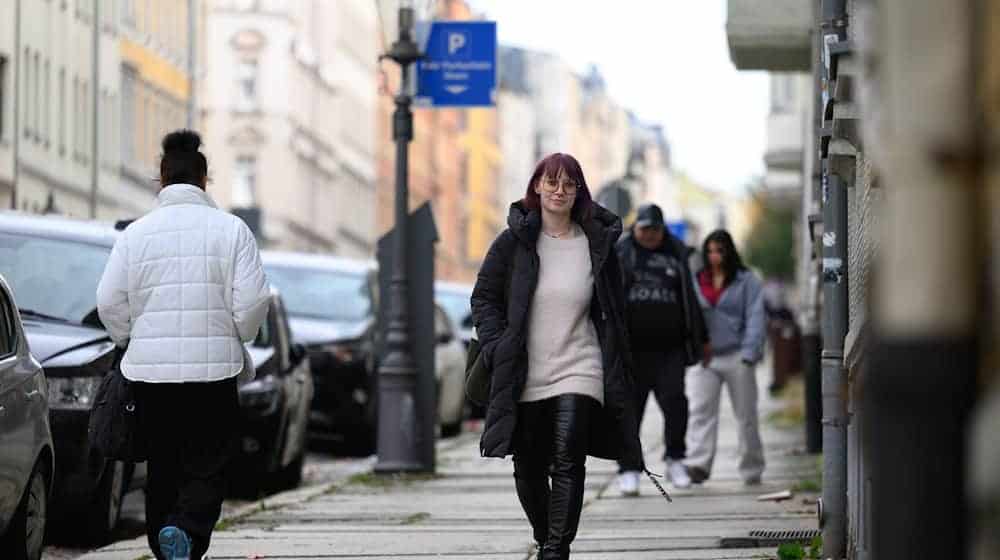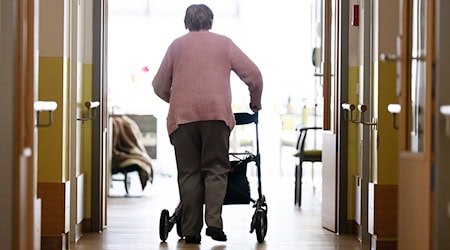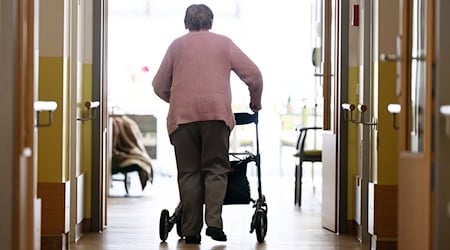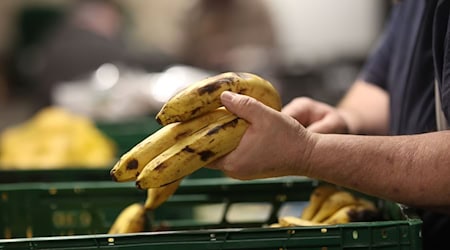Saskia Schaarschmidt is saddened when prejudices about recipients of citizen's allowance appear on social media or elsewhere. Because those who completely refuse to take up work are probably only a small minority, says the 25-year-old from Chemnitz. She views the debate about the citizen's income with concern. "I also think it's a shame that society is so unresponsive to the needs of those affected."
Schaarschmidt knows what she's talking about. The single mother of a four-year-old son has learned a profession that is urgently needed today: Nursing specialist. After completing her training, she worked for a temporary employment agency and earned 1,900 euros net per month. Then she became pregnant, and while she was still on parental leave, she received citizen's allowance.
Many applications were unsuccessful
She would have liked to work in her old job again. But because of her child in need of care, she was unable to find a new job despite many applications to hospitals and care homes - due to a lack of flexibility. As she is unable to work 12-hour shifts or late or weekend shifts due to a lack of family support with childcare, she is unattractive to employers.
Schaarschmidt retrained and now works part-time in security. At a municipal authority, she checks people's appointments and helps them get to the right place. She enjoys her work because she has to deal with people and can support them.
At least the child should have everything
Compared to her previous earnings as a care worker, her current income is rather modest. "I often buy second-hand things. There were moments towards the end of the month when I just made sure that at least the child had everything." Friends helped her. She has only been on vacation once in the past four years - on a farm. That was wonderful.
"Many people didn't end up on citizens' income of their own accord, but simply didn't get another chance," the 25-year-old is convinced. She can understand why employers want maximum flexibility. Nevertheless, it is also important to keep the needs of the other side in mind.
Don't simply judge recipients of citizens' income
Schaarschmidt would have been very helpful if there had been a childcare option in the care home, for example. "It would have been great for the residents if they could have been together with children." Research has shown that people in need of care could also benefit from this. For the future, she would like to see two things in particular: employers becoming much more flexible and people not judging recipients of citizens' benefits so easily without having had a conversation with those affected.
"Whether the social benefit is called Hartz IV, citizens' benefits or basic security: anyone going through a difficult time deserves a decent minimum subsistence level," says Susanne Schaper, parliamentary group leader of the Left Party in the state parliament. There are people who completely refuse, but their number is vanishingly small. In 2024, just one percent of Saxon citizens' allowance recipients would have received a sanction.
More than 37,000 citizens' allowance recipients in Saxony go to work
"We are experiencing a debate on this topic that even the Federal Chancellor is participating in - as if the millions of people who need citizens' allowance were lazy and living in luxury. That is unspeakable and unfair to those affected. The vast majority are trying to stand on their own two feet again," argues Schaper. In fact, many of them are working. The number of people affected has risen in recent years, with a good 37,400 people affected in 2024.
Schaper thinks it is unacceptable that so many people in the state still need citizen's income even though they are working. Entrepreneurs who withhold a decent wage from their employees have so far been supported by the general public. "We can and must no longer afford this as a society!" Saxony must no longer be a low-wage state - the government must put pressure on it.
Leftists see a poisoned debate on the citizen's income
"As a result of the poisoned debate, the CDU and SPD now want to attack the assets of those affected again, which devalues their life's work. Anyone who becomes unemployed after decades in a job receives unemployment benefit for a while, after which they are immediately threatened with social decline. This is not something a government should be celebrating," says Schaper, commenting on the German government's latest decisions on the citizen's income.
Diakonie warns of social consequences of the citizen's income reform
Diakonie Sachsen warns of the social consequences of the citizen's income reform and sees the planned tightening of sanctions as a risk to social cohesion, particularly in the structurally weak regions of eastern Germany. Restrictive sanctions should not be the main focus. They would not only affect individuals, but could also burden entire benefit communities. Children or partners who have not committed any breaches of duty should be protected.
"In regions with high poverty rates, low wages and insecure employment, the planned reform threatens to further undermine trust in the welfare state," says Diakonie boss Dietrich Bauer. If penalties and benefit cuts were to come to the fore again, "people would become insecure and marginalized instead of strengthened". "This is wrong in terms of social policy and contradicts our understanding of social responsibility."
"Poverty-proof basic security" instead of new sanctions
Bauer is calling for "poverty-proof basic security" instead of new sanctions, investment in long-term training projects and a social policy that strengthens families and prevents homelessness. "Social security is not a cost factor, but the basis of our social cohesion."
Copyright 2025, dpa (www.dpa.de). All rights reserved










